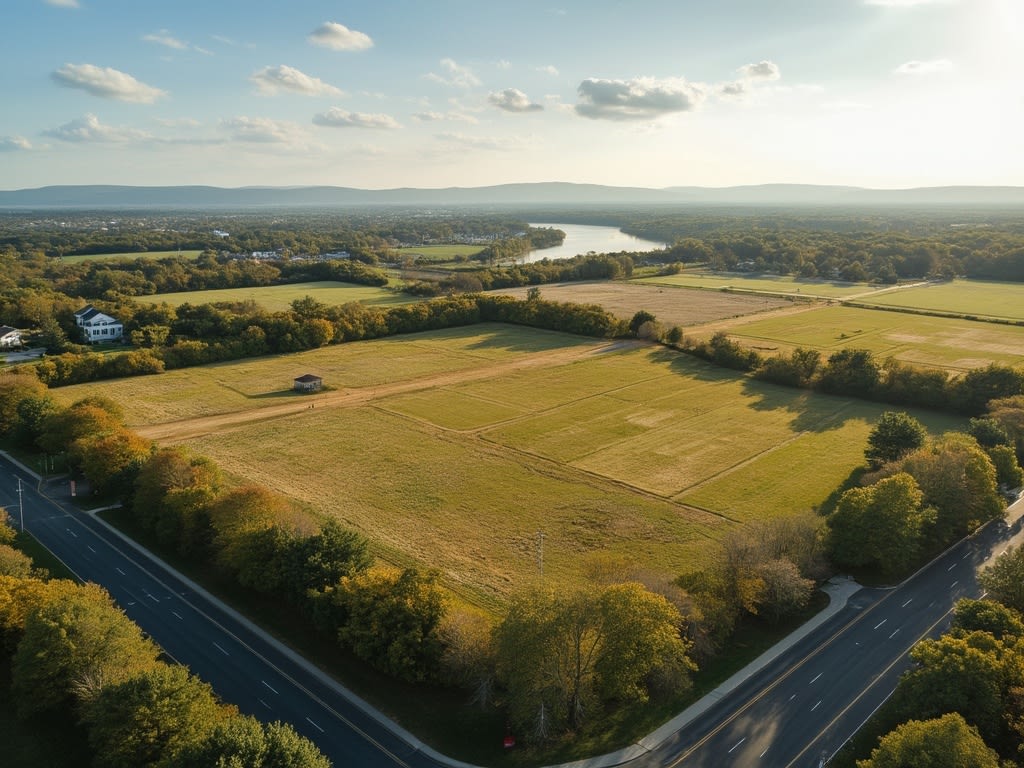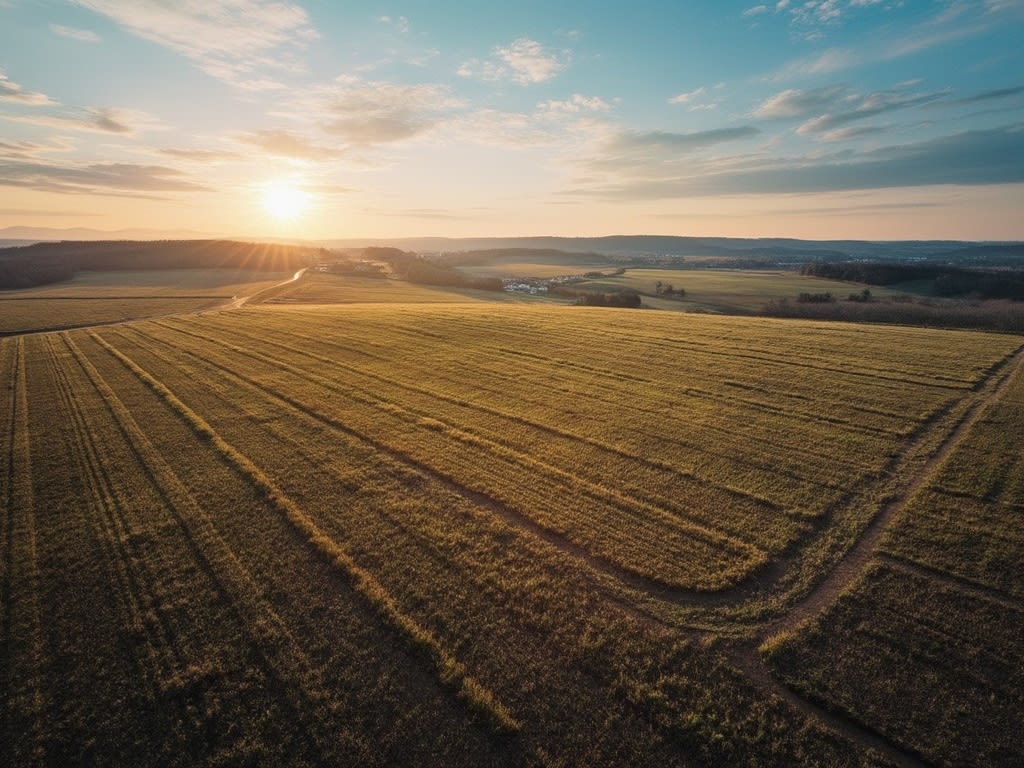Virginia’s thriving economy boasts a $557 billion GDP and high employment rates, making it a prime location for Virginia property investment. Rural properties maintain steady appreciation, while the state’s varied terrain spans from coastal beaches to mountain ranges. This mix of historical significance and family-oriented features presents distinctive land ownership possibilities.
Key Takeaways:
- Rural properties in Virginia demonstrate a steady 3.2% yearly appreciation rate. According to the USDA Virginia Agricultural Statistics, agricultural land values range from $4,700 to more than $1 million per acre in premium areas
- Property owners benefit from substantial tax perks, including zero estate taxes and competitive 6% corporate tax rates, creating an appealing financial environment
- The state’s prime position offers peaceful countryside living with urban access and modern conveniences
- Virginia ranks among the top 10 states for education quality nationwide. Safe neighborhoods add to its appeal for families
- From beach activities to mountain adventures, the diverse environment provides year-round outdoor recreation options, enhanced by an extended growing season
A Smart Investment: Virginia’s Strong Economy and Land Values
Economic Strength Indicators
Virginia’s economic performance makes it a prime location for land investment. With a GDP of $557 billion and median household income of $80,615, the state’s financial foundation is solid. I’ve found that Virginia’s fifth-place ranking in national employment rates adds extra security for property investors in Virginia.
Land Value Growth Patterns
The numbers tell a compelling story about Virginia’s land market. Rural properties have shown a steady 3.2% annual appreciation rate from 2017 to 2022. Agricultural land presents diverse investment options:
- Prime Northern Virginia parcels command $1 million+ per acre
- Rural agricultural land averages $5,000 per acre
- Farmland typically costs $4,700 per acre
The agricultural sector’s $70 billion annual contribution to the economy, spread across 8.3 million acres of farmland, shows the state’s agricultural strength. These figures support Virginia’s position as a stable market for land investment.
https://www.youtube.com/watch?v=kI05oFbK_b0
Natural Beauty and Recreation: From Coast to Mountains
Diverse Landscapes
Virginia’s terrain creates perfect opportunities for land ownership, stretching from Atlantic beaches through the Piedmont region to the Appalachian Mountains. I’ve found that waterfront properties along rivers and creeks offer both scenic views and recreational access. The state’s position as a premier East Coast wine region, matched with rich soil and a lengthy growing season from March to November, makes it ideal for agricultural ventures.
Outdoor Activities Year-Round
The state’s four distinct seasons let landowners enjoy their property differently throughout the year. Here’s what makes Virginia’s outdoor recreation special:
- Extensive network of hiking trails across state parks and forests
- Lakes and rivers perfect for boating and fishing
- Sandy beaches along the Atlantic coastline for swimming
- Rolling Piedmont hills ideal for horseback riding
- Mountain slopes for winter sports and summer camping
- Protected wilderness areas for wildlife viewing
The mix of landscapes means you’re never far from your preferred outdoor activity. I particularly value how Virginia’s varied elevation zones, from sea level to mountain peaks, create multiple climate zones. This variation allows landowners to choose properties that match their lifestyle preferences, whether that’s coastal living or mountain retreats.
Business and Tax Advantages
Tax Benefits for Property Owners
Virginia offers compelling tax advantages that make land ownership financially rewarding. I’ve found the state’s income tax structure particularly beneficial, with rates ranging from just 2% to 5.75%. Business owners can take advantage of the competitive 6% corporate tax rate, making Virginia an attractive option for commercial land development.
Here are the key financial benefits that make Virginia stand out:
- No estate taxes since 2007, protecting generational wealth transfer
- Lower property tax rates compared to neighboring states
- Business-friendly regulations that support land development
- Tax incentives for entrepreneurs and small business owners
- Streamlined permit processes for commercial property use
The state’s supportive stance on small business operations creates perfect conditions for landowners looking to monetize their property. Local governments actively encourage entrepreneurship through various programs, while maintaining reasonable oversight that protects property values. Combined with Virginia’s strong economic growth, these advantages create solid opportunities for both residential and commercial land investments.
Urban Accessibility with Rural Charm
Strategic City Access
Virginia offers a rare mix of metropolitan convenience and countryside tranquility. I’ve found that property buyers can live outside major cities while maintaining quick access to essential urban services. The state’s layout places several major cities within comfortable driving distance of rural areas.
Here’s how Virginia’s key urban centers benefit landowners:
- Washington D.C.’s northern border provides federal job opportunities and cultural attractions within a 1-2 hour drive from many Virginia locations
- Richmond, the state capital, serves as a central hub for business, healthcare, and entertainment
- Roanoke offers mountain city living with modern amenities in the western region
- Charlottesville combines college-town energy with historical significance
- Virginia Beach and Norfolk create coastal opportunities with military and maritime industries
You can purchase land in peaceful settings while staying connected to city conveniences. Morning commutes from rural properties to urban offices remain feasible. Shopping centers, hospitals, and entertainment venues sit just a short drive away from many countryside parcels. This arrangement lets landowners build custom homes in quiet locations without sacrificing access to restaurants, cultural events, or career opportunities.

Rich Historical Heritage
Colonial Legacy
Virginia’s status as one of the original 13 colonies makes land ownership here uniquely special. I’ve found that properties often sit near important American heritage sites, connecting landowners to the birth of our nation. Mount Vernon estate and Jefferson’s Monticello serve as grand examples of early American architecture and cultural significance.
Battlefield Proximity
Civil War history runs deep through Virginia’s soil. Here are some historical features you might find near your property:
- Preserved battlefield sites from major Civil War engagements
- Historic small towns with original 18th and 19th-century buildings
- Ancient stone walls and markers dating to colonial times
- Original homestead foundations and structures
- Historic roadways like the Old Carolina Road
Land parcels in Virginia often include or border these historic elements, adding both monetary and cultural value to your investment. This rich backdrop of American history transforms simple land ownership into a connection with our nation’s past.

Family-Friendly Features
Educational Excellence
Virginia’s education system ranks as one of America’s finest, making it perfect for families looking to settle down. The state’s public schools consistently score in the top 10 nationwide according to Education Week’s annual rankings. From elementary to high school, students benefit from advanced programs and dedicated teaching staff.
Safe, Connected Communities
Beyond academics, Virginia’s neighborhoods create ideal environments for raising children. Here’s what makes the state stand out:
- Low crime rates across suburban and rural areas
- Active community centers and recreational programs
- Local parks and playgrounds within walking distance
- Regular family-focused events and festivals
- Strong parent-teacher associations
- Extensive youth sports leagues and activities
These features combine with Virginia’s 23 public four-year universities and 23 community colleges to provide lifelong learning opportunities. The mix of safety, education, and community engagement makes Virginia property especially attractive for families planning their future. Understanding how long it takes to sell land in Virginia can help investors plan their exit strategy effectively.


